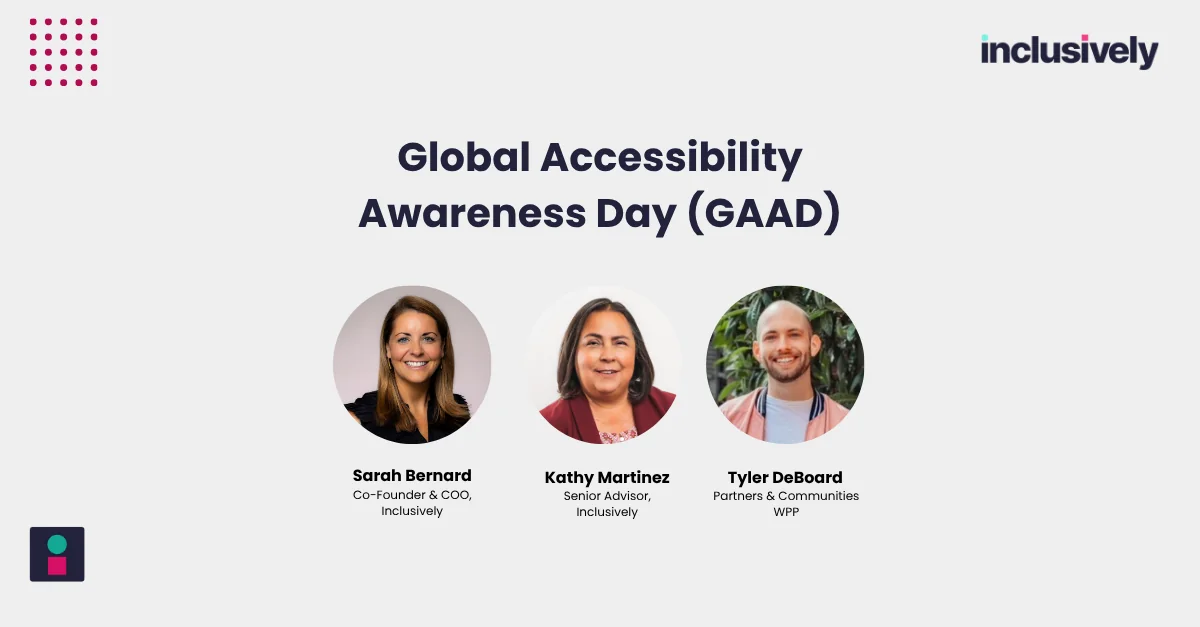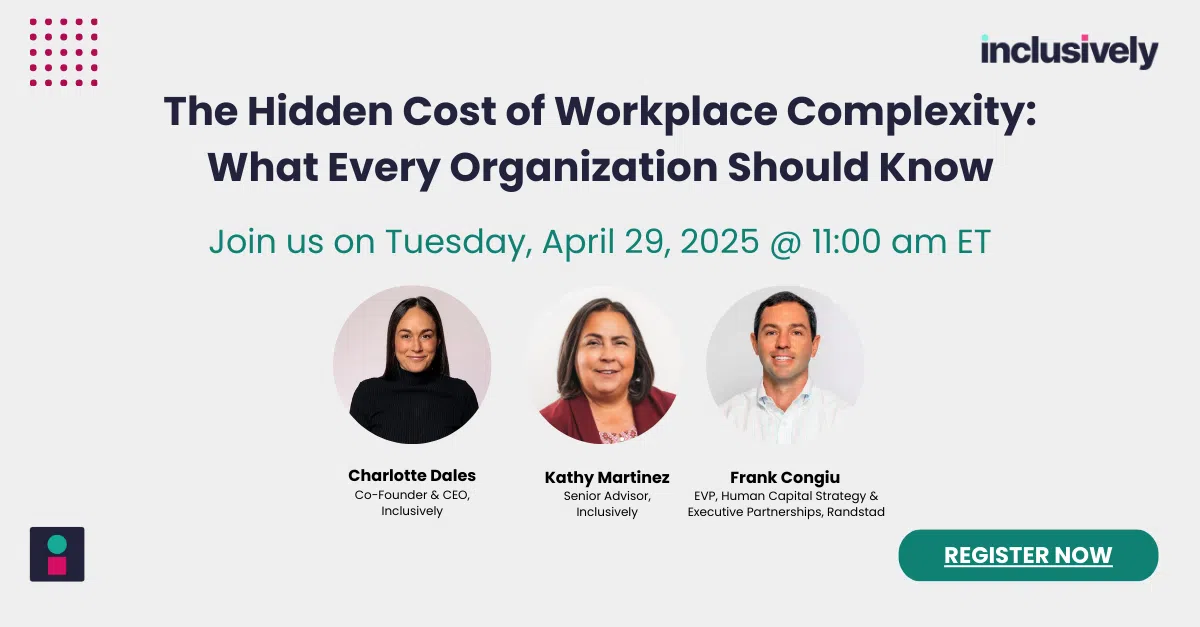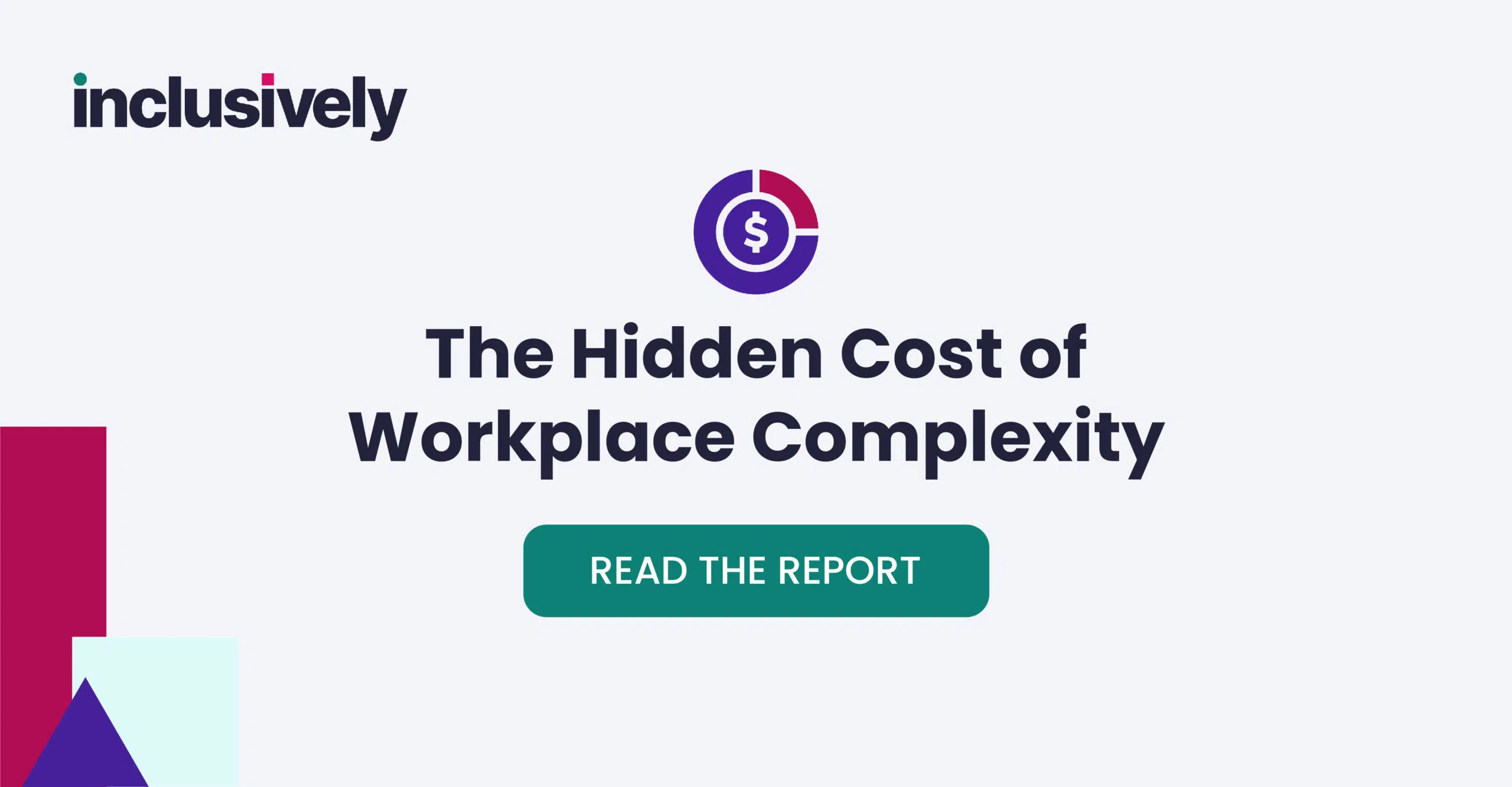Webinar
15+ Years After CRPD, Access and Inclusion are on the Rise
Thank you for filling out our form!
Please enjoy the webinar.
Webinar Transcript
CHARLOTTE DALES 0:00
Welcome, everyone. And thank you all for joining us today, the 2021 International Day of Persons with Disabilities and also the 15th anniversary of the UN’s Convention on the Rights of Persons with Disabilities, also known as the CRPD. I’m Charlotte Dales and I’m the CO-Founder and CEO of Inclusively. This is a technology centered employment and training platform connecting disabled jobseekers, to inclusive companies. I use she and her pronouns. And I’m a white woman with brown hair wearing a black blouse. I’m really excited to be joining this esteemed panel to discuss the importance of the UN Convention on the Rights of People with Disabilities. This treaty passed 15 years ago, and it created a global movement, especially in the area of employment of people with disabilities and create an opportunity for technology innovation, that is disrupting the status quo. We have an incredible group of leaders contributing to this conversation, and I’d like to introduce our moderator, Frances West. She’s the founder of FrancesWestCo, and former, former IBM Chief Accessibility Officer, she’s a globally recognized thought leader and expert in digital inclusion strategy. And she was actually there in 2006, working with different stakeholders while the CRPD was signed. She’s also an incredibly valuable advisor to Inclusively and I will hand it over to her to give a more formal intro on herself.
FRANCES WEST 1:28
Thank you very much, Charlotte. Good morning, good afternoon, or maybe even Good evening. My name is Frances West, founder of FrancesWestCo. I go by and she her pronouns, and I’m over 50 plus, Asian woman, I’m not going to give my age away. And this is just a delightful morning, I’m calling me in from Boston, Massachusetts. I’m very honored to host this very, very diverse, and international panel. And like Charlotte said, today is the 15th anniversary of this particular
FRANCES WEST 2:07
human rights treaty. And for those of us who are in the digital accessibility or digital inclusion world, we all can think back on the day when this treaty was passed the first human rights treaty that’s actually we embedded as some technology,
FRANCES WEST 2:25
a kind of underpinnings. So we do have a very large panel today, because we want to have the audience you introduce to the audience a different perspective, both from the government sector, in this case, lead with United Nations, all the way to private sectors, and also to startups, right, because what we want to do is to really share with you how this treaty, how this policy that was set at the United Nation level, actually have a material impact on technology innovation, and how he actually led to some of the incredible solution that we’re seeing coming out of both what we call enterprise, large customers, global customers, and also from in the most excitingly from startups. So we see the next generation of technology solution coming into play. And we can all trace back to the day to 2006 when the treaty was signed, and one of the architects of this treaty, and also the person really initiated inside nine, a nation is the Ambassador Gallegos, who’s on the call today. We’re just delighted to have him here. And he’s going to give us his perspective on the background. Now, I do want to say that we also have other panelists, Isabel Hodge, Executive Director of the US International Council of disability, you use it actually play a significant role connected with the private sectors in supporting this. And we also have John Kemp and John Kemp, many of you knows was the actually the founder of a USBLN. And now his Disability:IN and then he’s been the CEO of the Visacardi school for many years. But just most recently, 10 days ago, the CEO of Lakeshore, and then Christopher, the Vice President, Chief Learning Officer of IAAP, part of the G3ICT, that focusing on bringing technology infrastructure, including visibility to the world. And last but not at least Crosby Cromwell, who’s a good friend of mine, and she was just announced last this week earlier to be the Chief Partner Officer of Valuable 500. We all know how Valuable 500 is fundamentally changing the creating a sea change and you’re going to hear from her later. So now to without further ado, I’m going to pass the baton over to Ambassador Gallegos. I do want to remind our participant that because
FRANCES WEST 5:00
is a large panel. So please try to limit your perspective to three minutes or so and so that we have time to go around to ask additional questions, and also time for Q&A. So with that, Ambassador Gallegos
AMBASSADOR GALLEGOS 5:15
Thank Thank you very much, Frances, it’s an honor and a pleasure to be with all of you. Greetings from Malaga, Spain, I am here
AMBASSADOR GALLEGOS 5:23
promoting an initiative for active aging, which is one of the concepts we got out of the convention of the CRPD. You’re either born with a disability or you acquire it during your life by accident or by sickness, or whatever other reason, but certainly as you age, and I am a person that has to confess that I’ll be 75.
AMBASSADOR GALLEGOS 5:46
The 13th of December,
AMBASSADOR GALLEGOS 5:48
a very, very unique day, because the 13th of December of 2006, the CRPD was approved by the content by the General Assembly of the United Nations.
AMBASSADOR GALLEGOS 6:01
The United Nations had worked a 20 years on the decades for persons with disabilities on the issues of disabilities. But it was only until 2002 that a resolution was approved in the General Assembly to create a working group. And I had the honor of being elected by unanimity as the chair of the group that elaborated being convention from 2000 to 2005. Don McCain, the ambassador from New Zealand, took up the baton, and on December 13 2006, the CRPD was approved. It’s the first human rights convention of the United Nations during this century. And it is the most successful one, because it has 183 members. That practically is the unanimous is the global universal membership of the United Nations. I also had the honor of being in the White House in July 2009, when President Obama signed the CRPD. And I have the distinct honor of having one of the pens that he signed the convention that he gave me, as a momentum of this historic moment in which the United States signed the CRPD.
AMBASSADOR GALLEGOS 7:18
I believe that it has changed paradigmatically the lives of millions of people, the target of population is of course 1 billion persons with disabilities, some calculate that from the last count in 2011. By now it should be 1.3 billion people. I can say also that that number has to be increased with the shareholders, with the persons, the families of persons with disabilities, which give you a group of around 2.5 to 3 billion people who have a direct linkage with disability.
AMBASSADOR GALLEGOS 7:57
On our I’ll go back to the point in where the impact has changed, certainly has changed me I’m a negotiator. I’m a person that is not an expert on disability. But I have become a staunch activists of the of the belief that this is owned by the disability community, we owe it to them. And we owe it to people like you who have been able to change the world to make it a better place for those who are the most vulnerable. Thank you very much.
FRANCES WEST 8:28
Well, thank you, Ambassador. I think you talked about personal change. I mean, all of us after we started in this area, we individually all made a decision to continue this journey and continue to be involved in I can speak to that. And so now we’re going to pass on to Isabel. So for Isabel to share what, even though United States have not signed the treaty, but united say was a leader in terms of install leadership and a lot of the UN, the treaty actually is modeled after the US. So Isabel would love to hear from your perspective, what uses role in this signing and also what what are you doing currently with the organization?
FRANCES WEST 9:18
You’re on mute, Isabel
ISABEL HODGE 9:27
There we go. So um, yes, the US International Council on Disabilities led the campaign for the ratification of the CRPD back in 2012. And then again in 2014. And
ISABEL HODGE 9:43
several people on this this call today were involved in that, namely, John Kemp and people like Tony Coelho and Mark Bristow.
ISABEL HODGE 9:55
So, unfortunately, you know, we fell a few votes short In the Senate to have the ratification happen, and but as Senator Menendez chairman of the Senate Foreign Relations Committee said last night, or Gala, he said, you know, the the bill, I mean, the package is still alive. You know, there’s still the opportunity to try again. And so we’re really looking to 2022 to the midterm elections to see where we are with Republicans, especially.
JOHN D. KEMP 10:38
Frances you’re on mute.
FRANCES WEST 10:41
Thank you. I know we all once, right. Yeah, I distinctly remember, we were six votes short, in getting this thing ratified. And I was walking up and down the hall, at the time with a with a guidance from actually
FRANCES WEST 10:59
Mr. John Kemp, who was who’s next to share, because at the time, John was working with us, when I’m when I say us, IBM, in trying to really rally the support for this. So John, could you take us back through the memory lane of where, you know, and how you and your organization contributed to this?
JOHN D. KEMP 11:22
Thank you. And it is a privilege to be on this panel with such distinguished people. And thank you very much for the invitation. I do think back to the mid 2000s, the odd years. And I do recall very clearly that the disability community was learning about its own culture, and really appreciating who we are and elevating ourselves up to believe that we rightfully and righteously belong as equals, in all aspects of society. And I think that was the underpinning that Ambassador Gallegos identified when 2002, when the resolution was approved, to create the body that started studying this issue in the United States. A number of advocates were far ahead of industry at that time. Not all industry tick progressives like IBM and Frances West, they were very far out in front. But not everybody was following. So I think about the issue of, of leadership in this area. And back then it was Ambassador Gallegos. So it was Frances West, it was PJ Eddington at IBM. It was Judy Brewer, it W3C. It was Jim for Ackerman, Greg Vanderheiden.
JOHN D. KEMP 12:35
It was it was people like that, that helps start the discussion of pushing and lifting this up. But there are two elements that I want to point out. One is that among people with disabilities, we were learning about our culture, our disability culture, and that transmission of our culture is really heightened by the accessibility and use of the Internet and the World Wide Web. And our, our inability to access those powerful tools easily and readily, and in real time, really limited our ability to discuss among ourselves and elevate ourselves as a civil rights movement here in the United States and globally, then you take that out to just being citizens of the world, being consumers and employers and employees. And, you know, just looking at the way we communicate and socialize, we realized that there was something terribly, terribly wrong and and I will say that when the treaty was finally passed, there were at least five or six provisions in the in the treaty that identified accessible ICT information and communication technologies. And that was probably the combination we’ve been playing catch up. And we are civil rights comes too slowly to many of us who are progressive, we’re frustrated by it. But at the same time, we have great hope for the future. So that’s the context, I think that I wanted to make sure that people understood.
FRANCES WEST 13:59
Well, and talk about giving context and and talked about, it has been a very interesting journey, even for private sector. When we started looking at this field, you know, Ambassador mentioned that this is aging, aging population is just so obvious to us that you know, disability, whether you’re born but eventually you acquire disability through aging, as as I can attest that personally, as I get older, and that the market potential is huge. And for those of us who recognize that early on, it’s actually still sometimes puzzles me why we didn’t have as much you call the following or, you know, as much as that is taking, you know, decades, you know, but the wave definitely is coming in. And that I think you’re you’re mentioning about technology has to be part of the human rights
FRANCES WEST 15:00
Any kind of rights thinking, because we are a society run by technology now and integrated into our lives, how we learn how we live, how we work, how we socialize. So with that, I think it’s absolutely critical, like you mentioned to have a technology as part of the part of the implementation. And I remember frankly, feeling a little lonely out there as a company, you know, and but, but that said, I want to turn to Christopher Lee because G3ICT, excel a lot at the time who’s the founder and chief of ICT was ambassador, myself, and myself and excel in the millennium Hotel in New York City, we just sit in the lobby, and we say, You know what, we got to do something. And of course, Excel then went on to establish G3ICT, which is now becoming a body of knowledge where people can go to so with that, I want to turn it over to Christopher Lee to really have you take us through, you know, some of the even though you were there, because you’re too young, Christopher, but you know what you’re doing with G3ICT through the IAAP initiative.
DR. CHRISTOPHER LEE 16:13
Wow, Frances, it’s great to be here. And it’s great to be here with this incredible panel, thank you for the invitation. And I feel a little awkward, because excels just right down the couple rooms away. And
DR. CHRISTOPHER LEE 16:26
it’s been an honor to work for G3 ICT this has been around since 2006. It was really formed with our idea and launched the idea of promoting the CRPD. And since 2006 G3 ICT has just done amazing work with partners, which is what we’re all about is partnering with organizations to really look at particularly how the CRPD is being implemented. And we’ve talked a little bit about that already. And that’s a challenge. I mean, the globe is a big globe and understanding Article Nine and understanding how you drill down to ensure that we are really making a difference. With the work that’s being done with the CRPD is an important important cause entry through ICT back in 2014 launch, the DARE index. And the DARE index focuses on an index kind of a report called how countries actually implementing the CRPD mostly around the ICT particular areas. And I we have a chance for you all I’ll read you some of these results with the 2020 refresh of the DARE index, and how far we’ve come from 2006 in all kinds of capacity building and policy building, and accommodation definitions and so on being within the governments,
DR. CHRISTOPHER LEE 17:47
these countries, governments, arenas, so it’s pretty exciting. We’ve got and I’m happy to share more with you in just a few minutes.
FRANCES WEST 17:56
Well, great, thank you. I think, again, going back to the original construct or the spirit of a treaty is that I think the UN really set an aspirational goal for all government, but in this case, also private sector to aspire to, right. I mean, when I look at this treaty, I always think about the Kyoto Treaty for the environmental movement that was, you know, set I think, in 1990 99, or something like that. And then how that created a business, it created a a carbon trading, you know, there’s a new business model actually evolved out of the, of that particular climate and environmental changes. And we can just see the parallel changes happening in this field, in the sense that, you know, you start out with a human rights kind of decreed and the framework, but with with the organization’s it through ICT, and also various advocacy groups pushing and also in some cases pulling. And then in his few cases, some of the business really are leading are beginning to understand what I call the innovator innovators, right, that they see that this is a bigger actually, it’s a win win situation, both for the humanity from the human rights standpoint, but also from business. So I think that is something that we all like, believe that has to happen because frankly, we are living in a political environment. Sometimes things don’t get done as easily, you know, so it’s good to take the private sector to step in because we have the more nimbleness and flexibility. So with that, I want I want to turn it over to crossfeed because Crosby, your new role at valuable 500 is just absolutely timely. And we’d love to hear from your perspective, you know, relating back to CRPD and how Valuable 500 Is, is
FRANCES WEST 20:04
the final impact of what the treaty is about, which is economic self sufficiency through things like employment, right
CROSBY CROMWELL 20:13
Sure. And thank you, Frances, it’s wonderful to be here with everyone today for an audio description, I and I have long red hair, I’m wearing a pink dress, I have skin that will always always burn in the sun. And I’m coming to you from my apartment in Washington, DC. So as Frances said, I’m the Chief Partnerships Officer of the Valuable 500. Just a little bit of context of, of what this organization is, we are all about driving disability inclusion at the highest levels of leadership. So our CEOs, understanding committing and advancing disability inclusion around the world, we represent 500 companies in 41 countries, with 22 million employees, and over 8 trillion annually in revenue. So where we are and what we’re doing, it’s the conversation, for instance, that you’ve said so eloquently before, is thinking back to 2006 and beyond of you standing in rooms by yourself, and feeling like the lonely leader, and the lonely company. And it’s about changing that conversation if we think about the advancements we’ve had since 2006. And where we are now, post CRPD, is look at the CEO business roundtable in 2019, and then putting a stake in the ground around changing the way that companies companies think about people about the humanity of the stakeholder versus the shareholder, primacy. So now we’re looking at business, even large global enterprises, thinking about social impact and social change. We have 500 CEOs who’ve stepped up to say, This matters. This is what’s happening in business. Frances, I actually took a moment this morning and went back and look at your testimony in front of the in front of the Senate. And you made this beautiful statement that policies make markets and policies drive markets. And I think that’s where we have been and I think what business is trying to do and is doing now is saying that business can drive policy business can push governments in ways that advance both people, place profit planet society, and Kember watching companies step forward with real commitment to action, not just not just words.
FRANCES WEST 22:23
Yeah, well, thank you very much. Actually, the Corps policy driven growth is a is a is a phrase that PJ Eddington who at the time was the IBM government program representative. And I and I think working with a with John, you know, that really inspired this this phrase, because we knew, we knew if you look at technology now, because on this panel, we’re talking about technology innovation, right? So we are talking about this is something that has to drive innovation, and that this this treaty, actually put some new innovation challenge on the on the table. So I’m going to come back to Charlotte, actually, Charlotte, for you to relate. I know you are the you are the next gen right. In terms of as an entrepreneur and in the startup companies. And in your from your perspective, how does the CRPD really impacted your thinking and your business? And, and frankly, your future?
CHARLOTTE DALES 23:29
Yeah, so I think the UN CRPD elevated the status of people with disabilities, not just their rights, but access to things like education environment, and includes technology as well. And as you said, the government usually sets the framework and incentives to drive social change. But oftentimes, it’s private businesses that accelerate this and take these initiatives forward. So as a startup entrepreneur, I can lean on the CRPD, to explain to our investors that this is a global policy initiative that has huge and long term business impact. And frankly, excluding one in four to five people from the workforce is simply a poor economic decision for any country.
CHARLOTTE DALES 24:13
But I’m also just thrilled to have the opportunity to learn more about this today from the panelists, many of whom were there while this was happening.
FRANCES WEST 24:23
Well, I have to commend my panelists, everybody actually is very net and short. And so we are actually timewise managed really well. And I do have more question about you know, technology, what’s impacted today and what your perspective the future but but before we go there, I actually want to I want to bring it back in and talk a little bit more personally. How has the CRPD impacted you individually because I think especially we are now in the post pandemic in a world where during the pendant I’m actually I should say pose who knows what
FRANCES WEST 25:00
another wave coming in. But we all have done a lot of reflection as to who we are as an individual, and how we choose to do our spend our time and do our work, right. I mean, right now in the United States after I think globally, there’s this great resignation, you know, movement going on, people are quitting their jobs. And I can start to say that once I start getting into this and a 2006, when the UN Convention, start getting a setting, so I’m beginning to believe that this is, as I always jokingly said, the start as a job and then became a career and became a calling, right, it kind of set in motion, what I, Frances West would become, and most of you know that he’s actually coming up. And six years now, since I retired from IBM, I decided to make this my major. And I remember having a conversation with our executives, who at the time couldn’t quite understand because it was, it was a new idea. And he was like, Frances, what are you doing? You’re going into the weeds, you know, like, who knows about this stuff, right? But so I want to relate back and then choose to ask you all, you know, just, you know, how, what is your personal reflection on this, and in the context of your professional work?
FRANCES WEST 26:19
This is a free form. So anybody, anybody can speak up?
JOHN D. KEMP 26:23
I would, Frances this is John, I would, I would add that just follow up with that and say, years ago, we used to think that places were not going to be accessible. When we went there, hotels, restaurants, we just had this expectation 30 40 50 years ago, and along came civil rights in the United States. And we started believing that things are gonna change. And they did. And they have, and the ADA has had a profound impact in a lot of ways. And the UN CRPD is also changing the expectations of people. Today, we expect buildings and the built environment to be accessible. And now, especially younger millennials, and others can’t imagine a world that does not include people with disabilities in all aspects of life. And so the expectations that we have, and all of society, especially younger citizens of this world are is that everybody is included. And when they find these barriers exist, they are dumbfounded and can’t believe that this is happening. So this is about a major change a tipping point in the world. And hopefully that will drive it. And I so appreciate Isabel bringing up 2014 And Bob Dole. And I’ll just say Bob Dole was sitting in the well of the US Senate, looking his colleagues in the eye, he had helped almost every one of the Republicans get elected. And he sat there and looked him in the eye as they walked out and did not vote for the the approval of the of the UN CRPD the ratification and he looked at him and said shame on you. And he has devoted his life to this day to making sure that the CRPD is ratified by the United States, it’s embarrassing to us citizens in the United States.
FRANCES WEST 28:12
I’m gonna call Charlotte, Charlotte, I know that you have a personal, you know, story in the sense that the impact of this kind of this field on you and then the inspired, you know, your action, right?
CHARLOTTE DALES 28:29
Yeah, so for for me personally, I was inspired to start inclusively after my cousin became the first licensed facialist in the state of Florida with Down syndrome. So it’s very evident to me that what she’d been told her potential was all her life. And what she was actually able to achieve was far different. And what I wanted to do was see if we could use technology to bridge that gap between candidates and the skills they have and the accommodations they may need to employers and the accommodations they can provide, and the skills that they need. And I jumped headfirst into this company with no prior experience in the disability space. So for me professionally, it’s because of efforts like the CRPD that there’s even an ecosystem that I was able to quickly learn from.
FRANCES WEST 29:17
Right, now ambassador I know when we first met, you know, I mean, I was a newbie to disability business to like, all of us just kind of
FRANCES WEST 29:28
fell into it. And but but we were guided Of course with with people like John, you know, and others, that we just knew intuitively that this is the right thing to do. But, but frankly, we didn’t have any real real background or experience and I know you since then, since the early days is also made this part of your portfolio. So could you share some of that with with the audience?
AMBASSADOR GALLEGOS 29:57
A pleasure Frances. I have
AMBASSADOR GALLEGOS 33:08
For me as an individual it is become a calling has become a task, which I dearly love. I am the I’m also the president of the board of G3ICT. Excel was extraordinary and is extraordinary as a leader of the technology aspects because Article Nine included for the first time in a treaty, the issue of accessibility to technology,
AMBASSADOR GALLEGOS 33:36
women’s rights, the right to life, the right to death, the right, the torture, other articles, which were in great importance for the disability movement were discussed. And they were very challenging discussions on these issues. When the end of the day the document came out and was approved by the General Assembly, it was also a sigh of relief. But when you went to negotiation and have a tree, it is the beginning of a process. So I would I will tell you from 2007, when the treaty was
AMBASSADOR GALLEGOS 34:12
was ratified by 20 countries and came into force, we have the first for the first time in decades, had monitoring of the compliance of countries with a legally binding instrument that that became enforceable. 70 countries out of the world did not have legislation on disability when we ended the negotiation. Now all of them have now we have private, private sectors import giving the importance that is due to persons with disability looking at the challenges of their consumer base, which are demanding more inclusivity of women of indigenous, the rights of children and disability. So I think we’ve come a long way And we have a long path to go. And I hope those of you who are younger than us will take the baton and carry this out, like Crosby and shallot will have. And Christopher will have the vision that this is about a more just society.
AMBASSADOR GALLEGOS 35:18
And this begins by the change in ourselves. So I wish you the best also, because it’s been a marvelous, almost 20 years of since we began the negotiations, and it has been a world changer. So I deeply thank God that He gave me the opportunity of working on this process.
FRANCES WEST 35:39
Well, thank you, Ambassador, I mean, you you’re really the what is the one that let you know, kind of up the hill that is up on the hill. And for the audience. I think this is actually a very important point, I think, both society and both the public sector and the private sector as involved in such a way that as a society, this this phrase that we heard, you know, public private partnership for many, many years was just a kind of cliche phrasing, right. And, but I can tell you that at least from from the time when I was at IBM, or when we look at, you know, the the coupon code, the emerging landscape of strategically how you look young, because in a technology business, you can never just work on what’s in front of you, right, you always have to look ahead and see where the, you know, I guess, using a hockey expression to see where the hockey puck is going. And then you build a back. And we saw this tremendous market movement. And because of demographic, because the technology advancement, because of social expectation. Now, for example, we meet George Floyd, the me to movement, that there is a sea change in the in the in the business engagement model, that is, as a business where you whether you’re startup or a practice that we’re a global company, you cannot just be working within your sphere, you got to connect. And in this case, one of the biggest thing I learned early on was, and which went out and conquer the traditional business model is I start connecting with advocacy groups and NGOs. Because that’s where the knowledge base is. So intuitively, that was the right thing to do for for my organization. But then later, I realized not many people were doing that. And people will say, Well, why do you talk to these NGOs? You know, advocacy groups, right? So on that note, I think the model is going to involve that you for business to thrive, actually, you actually have to have a very important just just like in business, we talked about channel strategy. This is a channel strategy. This is an alliance strategy. So on that No, I wonder whether it’s about or Christopher and Crosby, you have anything to to reflect in terms of your personal perspective on this? Yeah, this is okay.
CROSBY CROMWELL 38:04
Go ahead, Isabel, then I’ll follow up. Yeah.
ISABEL HODGE 38:07
So I was in kind of a unique situation where I was a federal employee at the US Department of Defense, and then went on a federal detail to the Department of Health and Human Services. So I was actually able to comment on the clearance for the CRPD in both agencies.
ISABEL HODGE 38:29
So at the Department of Defense is how is this affecting servicemembers and civilian employees? When they have, you know, a family member with a disability or, or a civilian employee with a disability? How is it going to impact them? And then HHS has, you know, what’s different from, you know, when we look at the CRPD, what’s Where’s, where’s the areas we still need to work on?
ISABEL HODGE 39:47
You know, some of our board members, people like John Wodash and Janet Lord, they were there in the basement of the UN. Working on the drafting of the CRPD. I noticed there’s a question about
ISABEL HODGE 40:05
In the chat here, I mean, they really brought that expertise from ADA to the United Nations. And, you know, when they say, the CRPD, is modeled after the gold standards and of the ADA, it’s really, you know, quite true.
ISABEL HODGE 40:24
They looked at the ADA extensively when they were drafting the CRPD.
ISABEL HODGE 40:29
Also, personally, I, you know, I was, I wasn’t testifying like you, you know, for IBM, Frances. But I was kind of on the sidelines with Pat Morrissey, we were, we were making I made an animation to simplify, you know, what is the CRPD for self advocates. And then we did talking points in English and Spanish for for grassroots organizations. And we actually met with the opposition, and Pat Morrissey’s hiatus
ISABEL HODGE 41:01
from the an attorney from the Home School Legal Defense Association to talk about, you know, what is it going to take to get you guys on board and support the CRPD. So, um, I have some really great memories, professionally and personally about, you know, around the CRPD, and trying to get ratified. And I think that’s one of the reasons why I left the federal government was because I was, you know, so passionate about the CRPD. And it’s, it can be really challenging to be a federal employee, and march up to the the heart building and almost get arrested. Yeah, so that’s one of the reasons I think I left and,
ISABEL HODGE 41:48
you know, also, you know, you know, Frances that I like to take time off of work and travel to developing countries, to give away pediatric wheelchairs through an organization. And so when I meet with mothers coming from rural villages, and for example, Guatemala, it’s, it’s very important for me, because I’m so passionate to talk to these mothers about, you know, the convention that that your country ratified, you have a national law, they’re not aware of any of this. So, I make it my responsibility to talk to these mothers. And it’s, it’s just amazing that these mothers, because of the stigma around disability in some of these countries, they they don’t even know there’s other mothers with children with disabilities in their own village, because they just don’t have children aren’t taken outside. So to bring these mothers together and have that conversation about the CRPD. And, you know, and just talk about the future, and what people with disabilities in the US are doing, as far as employment and technology and things like that, to give those those very rich examples is just eye opening. And they love they love to hear that. So that’s why a little bit background for you.
FRANCES WEST 43:10
Right, right. I mean, yeah, I mean, you’re continuing to help really educate, you know, the world on this, what their rights are, but in a very practical, you know, you know, assemble lead way. So Crosby, you were you were going to mention something?
CROSBY CROMWELL 43:27
Sure, no, I just think Ambassador Gallegos said it, but but it was so beautifully said that it was both a charge and a call to action for us to pick up the mantle and keep moving forward. And we have to acknowledge the shoulders that we’re standing on, and where the work has come and where it’s going. I mean, there are people on this call who have taken my hand and said, you know, come with me. And I could highlight those moments. But and I’ve been in the space now for for 20 years. And I really truly have never felt this hopeful. John said earlier that this really is at a tipping point, I’m seeing a narrative change around how we’re talking about disability, how we’re seeing disability, again, I focus on on business companies or talking about disability in a different way. I encourage people to spend time on social media today and see all of the posts that these global enterprises are putting out including their CEOs calling out disability inclusion and why DPD is critical. Why disability inclusion is critical. This is a sea change that we’re saying even to the point of a company like Unilever, banning the use of the word normal, and all of their policies and all of their marketing materials because what does normal mean anyway? And like we are evolving this community, my own personal story as an evolution as well, I moved in thinking that I was an ally, over the course of time have learned and understood my own disability story and how I did identify in my
CROSBY CROMWELL 44:59
From storytelling from an open community from allies driving change, just like Charlotte is doing with Inclusively, and then we all together are moving this conversation forward. So, Ambassador Gallegos, I pick up the charge, I pick up the mantle, I appreciate your words, and also where we’re all headed together.
FRANCES WEST 45:18
Right. Christopher, you’ve been
DR. CHRISTOPHER LEE 45:21
quiet. But yes.
FRANCES WEST 45:26
Dr. Dr. Dr. Lee,
DR. CHRISTOPHER LEE 45:28
well, you know, it’s just Crosby, I’m right there with you. And, Charlotte, I’m right there with you. And you’ve got to have partners who doesn’t believe in each other, you got to trust each other, and you got to move forward. Because this is hard work. You know, this isn’t easy work and changing minds, just reflecting back real quick, and I know how much time but when the CRPD was was was actually, you know, put into a put forward, I was actually doing a startup, a university at that time, and the store that was focused on ensuring that students with disabilities in higher education had access to digital content. And we know publishers and the struggles that we have digital content, and showing these textbooks are accessible. It’s unbelievable. That was still in the same place. However, the mayo trash treaty came into effect. And that was a complete shift. Still a lot of work to be done with publishers, but now students with disabilities in higher education around the world have access to digital content to access to knowledge, which is huge. And personally, that’s very important to me, because of my struggles with dyslexia, and learning displays growing up in not being able to read the printed word and all the letters kind of flipped around the page, like a fish out of water. So that was a major personal and professional impact that happened to me. And what we’re seeing,
DR. CHRISTOPHER LEE 46:50
you know, there’s still issues going on. We’ve got we got funding issues around the world, and we’ve got skill development issues that we’ve got to deal with. And that’s one of the thing that G3ICT and IWP is really working on with partners, to develop certifications to embed people with skills with critical skills about accessibility, whether it’s web accessibility, or document accessibility, but core foundation,
DR. CHRISTOPHER LEE 47:16
knowledge around disabilities into the workplace, sticking right in the line, keep growing that network. And we believe that as making the change, and we’re seeing that growth happen slowly and surely, with individuals that want to join this profession, this accessibility profession, which is a network in itself, and it there’s a shift across me, you’re right, there’s a tipping point that’s happening that John mentioned on, and it’s actually really cool to see at this 15 year anniversary time, right, that we’re starting to see that shift.
JOHN D. KEMP 47:50
Frances I have just a quick comment, and that is that the ITU, the International Telecommunications Union, four days ago came out with a report that said, there’s been a 17% increase in, in the number of people who are accessing the internet in the last two years, it is that up to now 4.9 billion people 4.9 billion people have access on a regular basis to the internet. Obviously, broadband is an essential component technology pieces are great. But there are large numbers of people who have access to exactly what Christopher is talking about. But that also leaves 2.9 million or another several billion people who are completely disenfranchised and 96% of those individuals do not have any connectivity at all. So we can say there’s been a quote, COVID Connect connectivity boost, because of us being sort of stuck in lockdown. But more people are accessing the internet and looking for information, education, even employment opportunities. The other point I want to make is we have to use our power. And as a CEO of the Viscardi Center where we’ve said nothing goes out of our place. It isn’t as fully accessible as it possibly can be as a policy. That is what I expect. This is what I expect at Lakeshore nothing goes out of our place, it is not fully accessible, and all the Valuable 500 I think you’re hearing exactly that they are adopting the those kinds of principles and making them institutionalized, so to speak as part of their mantra. So God bless Valuable 500 and G3ICT and all the all of you for what you’re doing. Charlotte is leading the way in a new platform, and I’m so proud to be a part of what Charlotte is doing. Thank you.
FRANCES WEST 49:37
Yeah, well, thank you all for actually sharing some of your personal journey in the context of the CRPD. And we are actually rapidly coming to the last 10 minutes or so I can’t believe 15 minutes is flown by. We do have a couple questions that maybe we can just spend some time to.
FRANCES WEST 50:00
Cheruo I hope I’m pronouncing correctly. All of you probably can see is under the q&A I think this question is about financing. And the part one question is, can you address some of the financing from the government sector? And the part two is the how do we develop workforce, you know, to include people with disabilities? And I know that part two, I would like, you know, Charlotte, maybe you can make make a comment. But, um, for part one, in the government sector funding perspective, you know, any comment from, from from the panelists? Have you seen in a personally, I think this is, like I mentioned earlier, I think this is an area where
FRANCES WEST 50:48
we actually need to move from a kind of a government funded model, which historically there are people disability has been been been put in more of a subsidy model, right, to a innovation model where the business will be actually enlightened or encouraged to, to use the private sector, investment and funding to to feel the access, the equal access. But any any comment from the panelists on this question? This term?
ISABEL HODGE 51:25
This is Isabel, and I think this really is where article 32 and international cooperation really comes in to, to this whole topic, discussion of governments and even donors, you know, in the projects, they fund and making sure that their disability inclusive.
ISABEL HODGE 51:47
You know, when it comes to ICT, I think of one country just recently that I learned about a project in the Dominican Republic, where there was a center that that was stood up, and women with disabilities were brought in to learn about computers, and then train other women with disabilities, and other, you know, marginalized groups about using computer technology. And, and so that’s a great example of international cooperation. It was, you know, funded, not by the Dominican Republic, government, it was funded outside by by another donor. So, um, I think, you know, donors have a responsibility, and also governments and there’s some really rich examples out there that we can look at the World Bank does amazing work around, you know, ICT access for people with disabilities.
DR. CHRISTOPHER LEE 52:47
This is Christopher, funding always doesn’t follow policies, right. Look at the ADA, and so on. However, just in the data that we’re collecting through the DARE index, which is the index that that is information flows from advocacy groups in these countries, so it’s not coming from the government agencies, this data is actually coming from the advocates in these countries. We’ve seen some amazing numbers jump, as I mentioned earlier, and, you know, if if the funding is tied to these policies at all, I’m sure that we’re seeing some increase in funding, just do one of these these numbers is the definition of accessibility includes ICT. So that’s one and then also reasonable accommodations definition. So reasonable accommodations, with 68% of the data that we have 170 countries are involved in this survey came back in and then around the definition of accessibility, which includes ICT, there was only in 2006, there’s only four countries at that time that had the definition of ICT, and now it’s at 61. So again, we don’t have any numbers on the funding aspect, but we’re definitely seeing policy shifting and changing which you’d hope would impact funding, you know, you know, from that sometimes step some standpoint.
FRANCES WEST 54:01
Right? There is so what you’re saying is a policy set up, but then there potentially be a little bit of luck. But we definitely see an upward trend globally in this area. Charlotte, can you Oh, go ahead.
AMBASSADOR GALLEGOS 54:15
I think that one can’t escape the reality we’re living in the world today because of the pandemic. I think the major blow to the health systems which put all this all the health systems in the world on their knees because of the pandemic is one that relates very, very, very closely to all of us. This is the first international crisis that has hit 193 countries, but it’s the first international crisis that affects each one of us. And that means that we and our dear ones are in the line of fire of death of deaths or illness crippling illness, in that sense. but it’s also brought a neck a financial and economic burden and, and effects on the supply chains and effects on all productive issues that really have been an are going to be a challenge for the world, the entire world. So you will see that society has changed its perception of those who are most vulnerable. Because we all have been subjected to internet, the lack of internet, the increase of unemployment, the increase of hunger, the employee, the increase of poverty, insecurity, and so on around the world. So there’s the societal change, the paradigm is changing. And people are more are accepting, are more willing to accept that change, and be more inclusive, and more so and demonstrate more solidarity than before. That being said,
AMBASSADOR GALLEGOS 56:03
a series of negotiations that are extremely important, are taking place, there will be a negotiation in the World Health Organization, or the new treaty for issues of COVID. I would suggest that the disability community act and I will be I will be one of them. One of those who will be posturing, the possibility of entering that negotiation and prosper, and having disability included in that acquisition. In many cases, we’ve been successful. We have included disability in in different international organizations and different agendas and different reforms. But in some cases, we haven’t we weren’t able to do this in the sustain in the sustainable objectives of the United Nations in 2015. We should try that in 2030. Why am I saying because there’s a worldwide agenda being drafted now. That has to include disability.
AMBASSADOR GALLEGOS 57:02
And many times, civil society and the disability society lose the perspective that something like the CRPD can actually be happening in the rest of the organizations of the multilateral organizations. And we have to put a very serious eye on that. What you mentioned, an ITU G3ICT has worked with ITU very close on a number of issues with an accessibility for persons with disabilities. So we have a very strong relationship. Right. I, I think that that issue of COVID will be one that will mark the next steps we should follow in guiding and protecting and promoting the rights of persons with disabilities. I’m sorry to take so long.
FRANCES WEST 57:46
No, thank you, thank you for actually pointing that out. And certainly your follow up now, I’m going to put the ask Charlotte, who actually made the final comment, especially on the workforce, and then, I guess, official close of this webinar.
CHARLOTTE DALES 58:01
Yeah, um, so I think the question was just around sort of, how do we how do people find ways to get themselves included into the workforce if they don’t, haven’t found that pathway yet? And I would say that, you know, when we first started this company, the kind of the problem we thought we were solving is so different than it is now. There’s tons of one training programs and mentorships, etc, out there. The problem is, you know, it’s very fragmented across nonprofits and government agencies. And, you know, one of the things that we’re trying to solve is how do we aggregate all these resources into one place so that if you’re actually not ready for maybe a job yet, we can actually create these career pathways that you can find sort of a program that’s relevant to you that aligns with a lot of the jobs on our platform. So an example is, there’s a number of you know, sales force training programs for people who have blind and low vision. This means that, you know, when you’re, you can actually acquire a skill set that 1000s of companies use, and you can learn to use Salesforce in a really accessible way. But we’re building out sort of the training program, and apprenticeship side of our platform, so that we actually don’t just have jobs and are working with inclusive employers, but we’re actually creating career pathways for people as well, that aligned to the skills that the workforce is looking for. And I know we’re over time. So I just want to say thank you to everyone for joining us, especially the panelists. It’s incredibly inspiring for me personally, to hear what everyone has to say it’s really hard work. But you guys made what we’re doing now so much easier, and it’s just incredibly motivating. And you guys are just the example of you know, not giving up and if you just keep putting one one foot in front of the other you keep going forward. So it was really motivating and inspiring to hear you guys today. So thank you, everyone, and
CHARLOTTE DALES 1:00:10
Thank you.
CROSBY CROMWELL 1:00:12
Thank you, Frances, for leading us. Happy IDPD everyone.
Unknown Speaker 1:00:15
you.
FRANCES WEST 1:00:16
Thank you very much. Bye bye
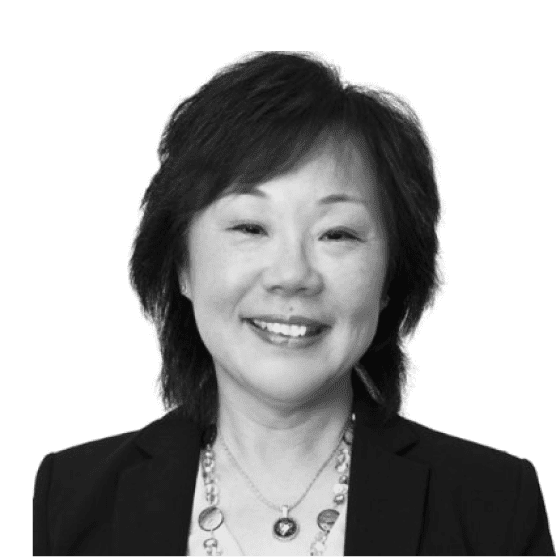
Frances West
Founder, TED Talk, SXSW International Speaker, Author, Corporate Board Director, C-Suite Advisor, Former IBM Chief Accessibility Officer
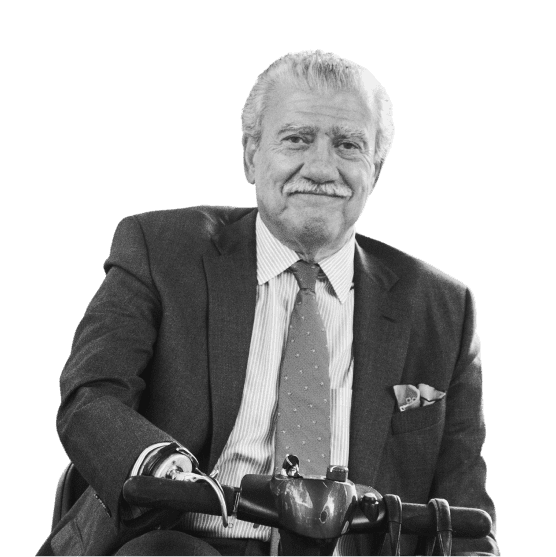
John D. Kemp
President & CEO of Lakeshore Foundation
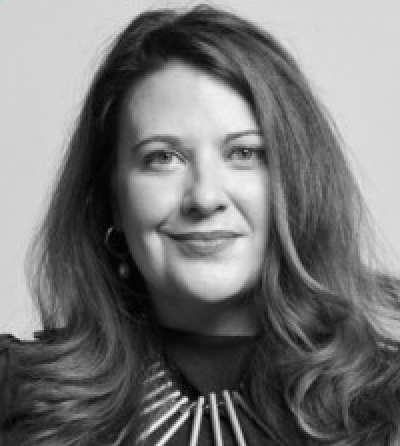
Crosby Cromwell
Chief Partnerships Officer of Valuable 500
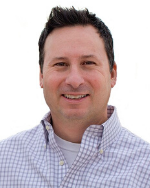
Dr. Christopher Lee
Vice President, CLO, and IAAP Managing Director of G3ict

Isabel Hodge
Executive Director of US International Council on Disabilities
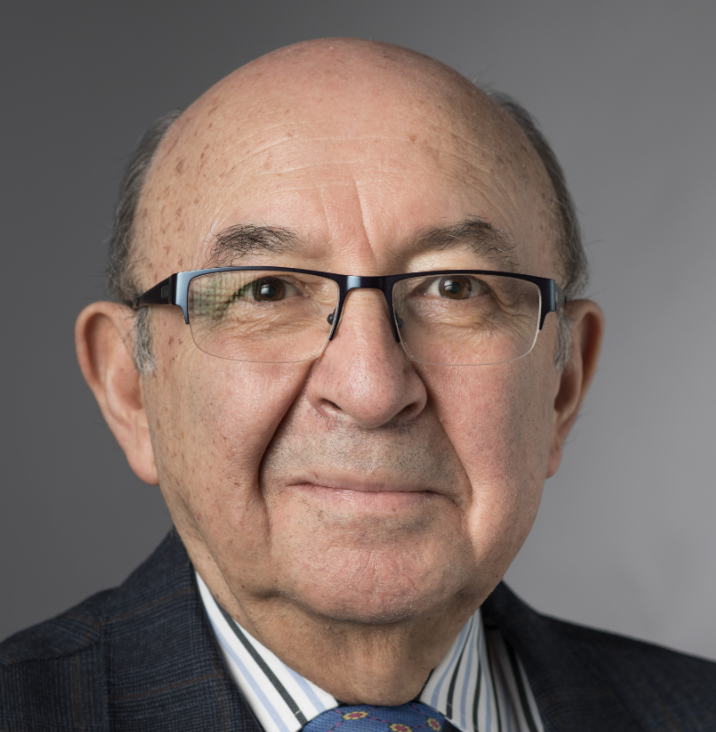
Ambassador Luis Gallegos
President of the Board of UNITAR
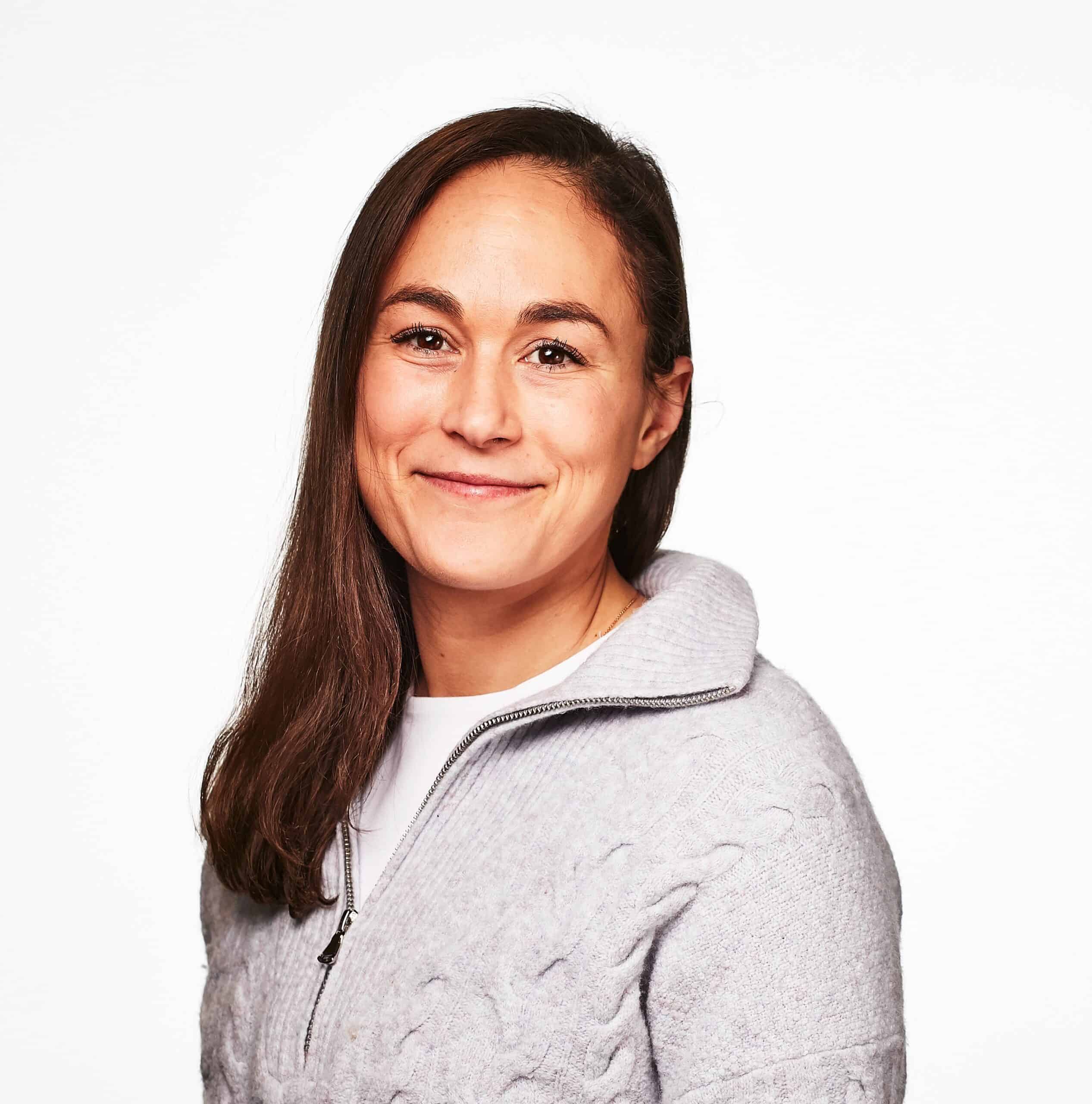
Charlotte Dales
Co-founder & CEO, Inclusively
